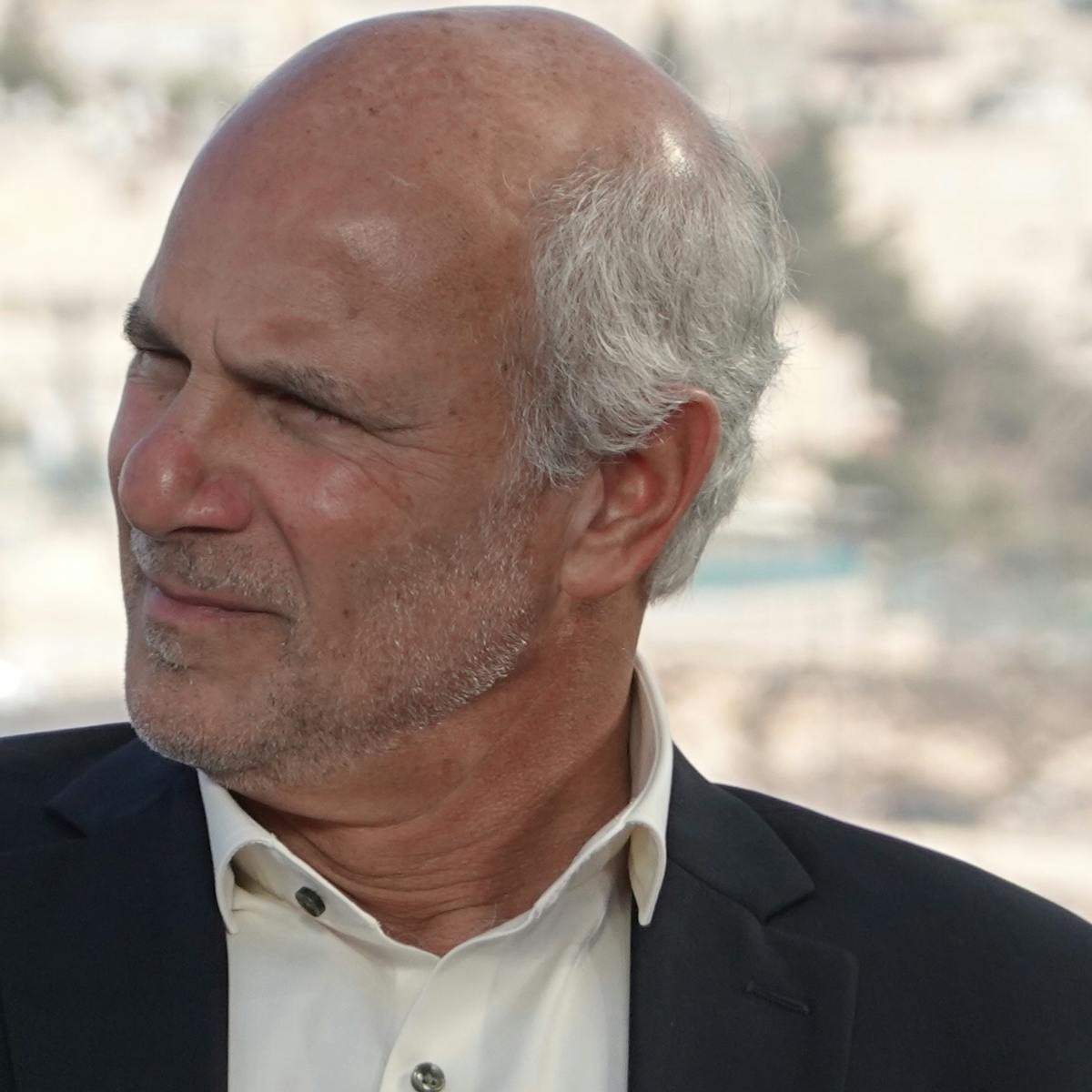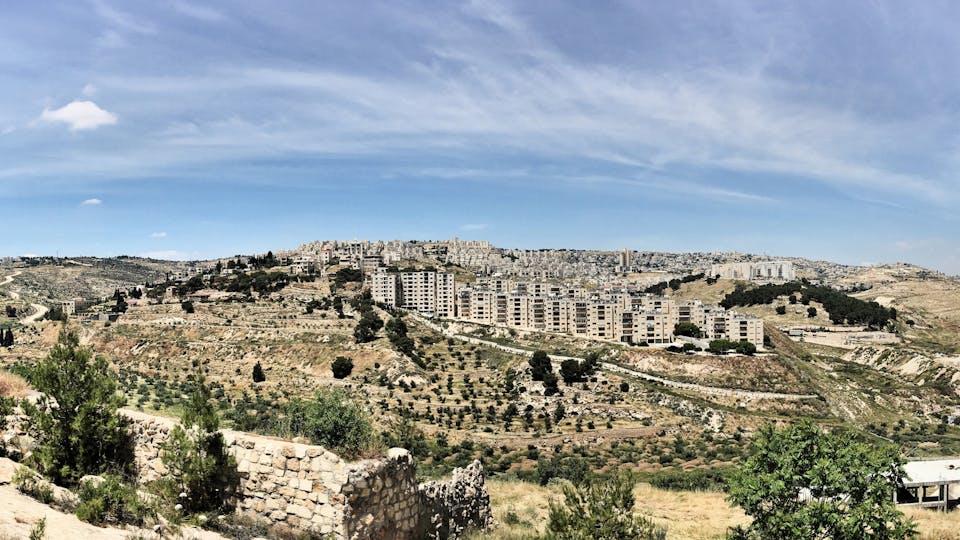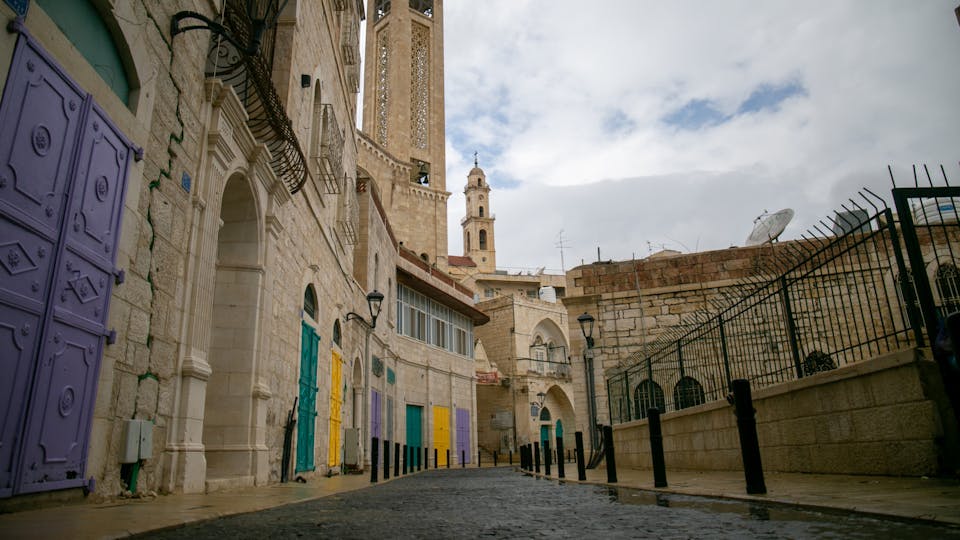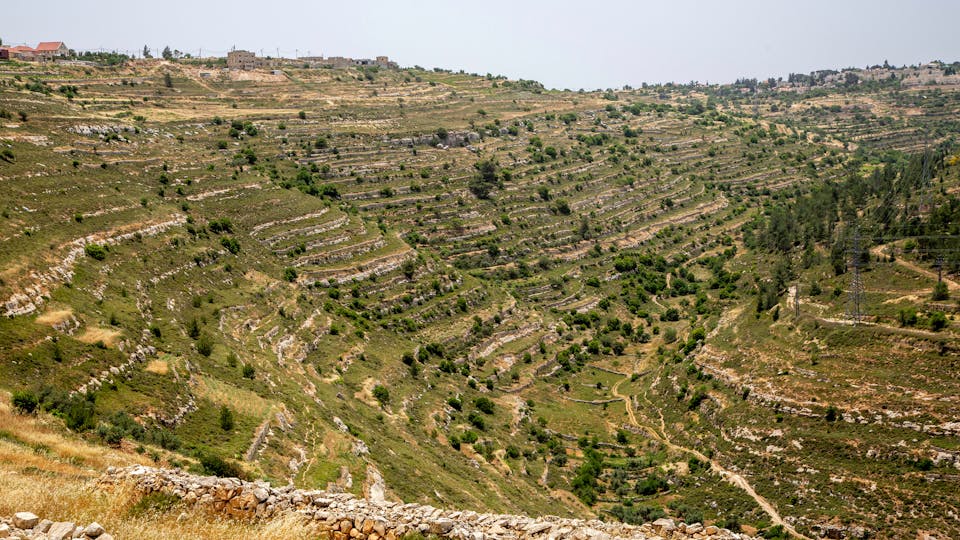Bethlehem - "House of Bread"

Nestled in the Judean hills just south of Jerusalem, Bethlehem is home to famous and popular pilgrim sites including the Shepherds Fields where the angelic choir proclaimed Messiah’s birth to the astonished shepherds; the Church of the Nativity which commemorates the traditional site of the birth of Jesus the Son of David; and the famous Manger Square in the city center which is a popular gathering place for many Christian celebrations and religious services for the last 2,000 years.
Bethlehem is a must-see site to visit for most Christian pilgrims and inquisitive tourists visiting the Holy Land, and every group or individual that includes this ancient biblical city in their travel itinerary is both blessed and encouraged when visiting Bethlehem today. And don’t forget the delicious Middle Eastern dishes offered in the stylish restaurants scattered throughout the town and the remarkable shopping adventures that include authentic, hand-made olivewood carvings and religious artworks with gold, silver, and precious stones.
The name BETHLEHEM is a beautiful Hebraic term that carried deep biblical and prophetic significance for the ancient contemporaries of the gospels as well as for us today. Originally made of a combination of two different Hebrew words, the name BETHLEHEM, or Beth-Lehem, literally means a “HOUSE (Beit) OF BREAD (Lehem)” in the Hebrew language. Over the centuries, both scholars and lay people alike have grown to deeply appreciate and love the significance of the fact that here, in this small biblical town in the hill country of Judea just south of Jerusalem, was born the One who in time would be proclaimed as the "The Bread of Life." And while the skeptic may only see a thriving Arab town with an interesting play on words for a name; the person of Faith sees the marvelous, heartwarming, and faith-building divine hand at work.
Thousands of years old, the town of Bethlehem is mentioned nearly 50 times in the Bible, beginning from the stories of the Hebrew Patriarchs and Matriarchs when they first settled in the Land of Canaan as recorded in the Book of Genesis, all the way to the prophesied Birth of Jesus the Son of David the Messiah as recorded in the New Testament Gospels. Bethlehem is also frequently mentioned in the Bible during the turbulent 400-year period of Israel's Judges and later became central to King David’s early activities since he was a native son of Bethlehem.
Bethlehem also houses the Hebrew Matriarch Rachel’s Tomb which draws Jewish and Christian pilgrims alike who arrive to visit this historic site in remembrance of Rachel’s legacy. As it is written, "Then they journeyed from Bethel. And when there was but a little distance to go to Ephrath, Rachel labored in childbirth, and she had hard labor. Now it came to pass, when she was in hard labor, that the midwife said to her, ‘Do not fear; you will have this son also.’ And so it was, as her soul was departing (for she died), that she called his name Ben-Oni; but his father called him Benjamin. So, Rachel died and was buried on the way to Ephrath (that is, Bethlehem)." (Genesis 35).
Of the many biblical references to the town of Bethlehem, the three most compelling and best-known scriptural accounts referring to Bethlehem are found in the ancient prophecies of the Hebrew Scriptures. All three accounts point to the advent of the Messiah, and offer the readers insight into the manner in which God’s promised Messiah, who was prophesied of by the Hebrew prophets, will enter center stage in order to begin His mission as the Lamb of God, the ultimate and eternal atoning sacrifice for all who would believe.

1. Bethlehem – The Big-Picture in the Story of Ruth
The first of these three biblical mentions of the town of Bethlehem is found in the story of Ruth the Moabitess who married Boaz from the tribe of Judah and was “introduced” into the bloodline of Jesus the Messiah. Ruth is not the only Gentile (non-Hebrew) woman to enter that divinely orchestrated Messianic bloodline that started from Adam and was meticulously woven through the generations of Noah to Abraham to Jacob and Judah all the way to Mary and Joseph. Yet Ruth’s story is of particular interest to us today because it is uniquely connected to the town and the prophetic legacy of Bethlehem according to God’s salvation plan which, according to Scripture, was launched “… before the foundations of the world.” (Revelation 13:8).
The story of Ruth is a prophetic foretelling of the saga of Israel, the coming of the redeemer, and the birthing of a new beginning. The names of all the main characters in Ruth’s story are also prophetic and very significant as they point toward the divine purpose of the ages.
Ruth’s name in Hebrew means “A FRIEND,” and she represents the Church, the Gentile Bride of Messiah who joins the ancient and troubled nation of Israel in hopes for the Redeemer. Naomi, whose name means “GRACIOUS or PLEASANT” in Hebrew, represents the nation of Israel who, while sojourning in exile, lost her husband Eli-Melech whose name in Hebrew means “MY GOD IS KING,” as well as both her sons, Mahlon and Chilion, whose names in Hebrew mean “SICKLY” and “ANNIHILATION.” Naomi is left all alone in exile, without the covering of her God or the future hope of her children, with only her Gentile daughter-in-law, Ruth, with her, as they return to Bethlehem together.
Boaz, the Kinsman Redeemer and the hero of Ruth’s story represent the Savior, and his name in Hebrew is built on two words, BO + AZ, meaning “IN HIM IS STRENGTH.” His name appears 13 times in the book of Ruth, describing him as the only “Kinsman Redeemer” (blood relative) of Ruth who was willing and empowered under the Law of Moses to redeem the widow of his deceased relative. The function of the Kinsman Redeemer is biblically profound, and the scope of that redemption is incredibly broad as it covers A – the widow, B – the land, and C – the name of the dead relative.
Taking Ruth, Naomi’s Gentile Daughter in Law who was by now widowed (typifying the Church) as his wife, Boaz (typifying Messiah) redeemed the name, the land, and the seed of the family of Naomi (typifying Israel) after she returned to Bethlehem from exile. Indeed, the short book of Ruth portrays a beautiful prophetic picture of the Great Redeemer who will come from Bethlehem years later to redeem His people.
Ruth (type of the Gentile Church) is a worthy bride for this great Hebrew bridegroom! Turning her back on her own people and Gods, her famous words echo down the centuries and resonate in many faithful hearts when she told Naomi, “Entreat me not to leave you or to turn back from following after you; for wherever you go, I will go; and wherever you lodge, I will lodge. Your people shall be my people, and your God, my God.” (Ruth 1:16). It was Ruth’s faith, devotion and courage as a non-Hebrew widow, casting her lot with the people of God, which earned her place in Messiah’s bloodline; and thus Bethlehem was biblically established as the launching ground for the greatest story ever told.

2. Bethlehem – The Location of Messiah’s Birth
The next epic appearance of Bethlehem in the Bible appears in Micah’s prophecy, one of the many Messianic prophecies foretelling the coming of the Savior. The Spirit of God spoke through the prophet, saying, “But you, Bethlehem Ephrathah, though you are little among the thousands of Judah, yet out of you shall come forth to Me the One to be Ruler in Israel, whose goings forth are from of old, from everlasting.” (Micah 5:2).
The precision and accuracy of God’s Word are truly amazing. Declaring God’s coming judgments and eventual redemption to the people of Judah and Jerusalem, the prophet weaves into the message of hope the precise location of Messiah’s birthplace hundreds of years before its time. This prophetic prediction regarding Bethlehem was (and still is) very accepted and well known among the Rabbis and scholars of Israel, as we see during King Herod the Great’s search to find where the Messiah was to be born (Matthew 2:5-6).
And indeed, just as the Jewish scribes and teachers of the Law answered Herod, it was in Bethlehem, Ephrathah, that Mary’s baby boy was born. Clothed in human flesh, God’s promised Messiah made His humble and nearly hidden entrance unto center stage and was born into His remarkable life in preparation to offer Himself a perfect sacrifice for mankind’s burden of sin.
Of all the places God could have selected to bring forth the Savior, Bethlehem was His choice. The beautiful Son of God could have been born in any of the great cities of this world like Rome, Paris, or New York; but the Father’s choice was a humble hamlet just south of Jerusalem. He could have been born to any of the privileged and wealthy royal dynasties of the world, but He chose the humbled and oppressed House of David from the Tribe of Judah.

3. Bethlehem – David’s Legacy and bloodline
Yet young and unknown, David enters the Biblical narrative with a sudden and impressive appearance, like thunder on a clear day, during the account of his famous battle with Goliath, the Philistine giant champion. Already having been appointed and anointed by the prophet Samuel, David, still a humble shepherd of his father’s flocks, arrives on the battlefield bringing supplies for his older brothers.
Taking the cause of the God of Israel, David challenged the giant, brought him down with a strategic strike of his stone, cut off his head with the giant’s own sword, and led the armies of King Saul in a resounding victory. The Scriptures say that “… as David returned from the slaughter of the Philistine, Abner (Israel’s General) took him and brought him before Saul with the head of the Philistine in his hand. And Saul said to him, ‘Whose son are you, young man?’ So David answered, ‘I am the son of your servant Jesse the Bethlehemite.’” (I-Samuel 17).
A descendant of the lineage of Judah, the royal line of Israel’s kings, and a native of the town of Bethlehem, God promised David that from his loins will come a king whose throne will be everlasting. It was only natural then that Joseph of Nazareth, himself a descendant of David, traveled to Bethlehem with his fiancé Mary to participate in the Roman imperial census.
As it is written, “… it came to pass in those days that a decree went out from Caesar Augustus that all the world should be registered. This census first took place while Quirinius was governing Syria. So all went to be registered, everyone to his own city. Joseph also went up from Galilee, out of the city of Nazareth, into Judea, to the city of David, which is called Bethlehem, because he was of the house and lineage of David, to be registered with Mary, his betrothed wife, who was with child. So it was that while they were there, the days were completed for her to be delivered. And she brought forth her firstborn Son, and wrapped Him in swaddling clothes, and laid Him in a manger, because there was no room for them in the inn.” (Luke 2).
And so it was in Bethlehem, the HOUSE OF BREAD, that the Savior was born; humbly, quietly, without human fanfare or worldly tributes. He was a descendant to the only bloodline of the kings of Israel, and He was born at the precise place as foretold by Israel’s ancient prophets long ago. And as we consider the marvel of the story and the importance of Bethlehem in God’s salvation plan, our hearts are filled with adoration to the One who Himself declared, saying, “I am the living bread which came down from heaven. If anyone eats of this bread, he will live forever; and the bread that I shall give is my flesh, which I shall give for the life of the world.” (John 6).
Surely, the town of Bethlehem is properly named since the “HOUSE OF BREAD” would be the only appropriate place for the “LIVING BREAD” to be born into the world. No doubt, every person of faith will be blessed and encouraged when visiting Bethlehem today, and your Sar-El Tours team is looking forward to seeing you here in Israel very soon.